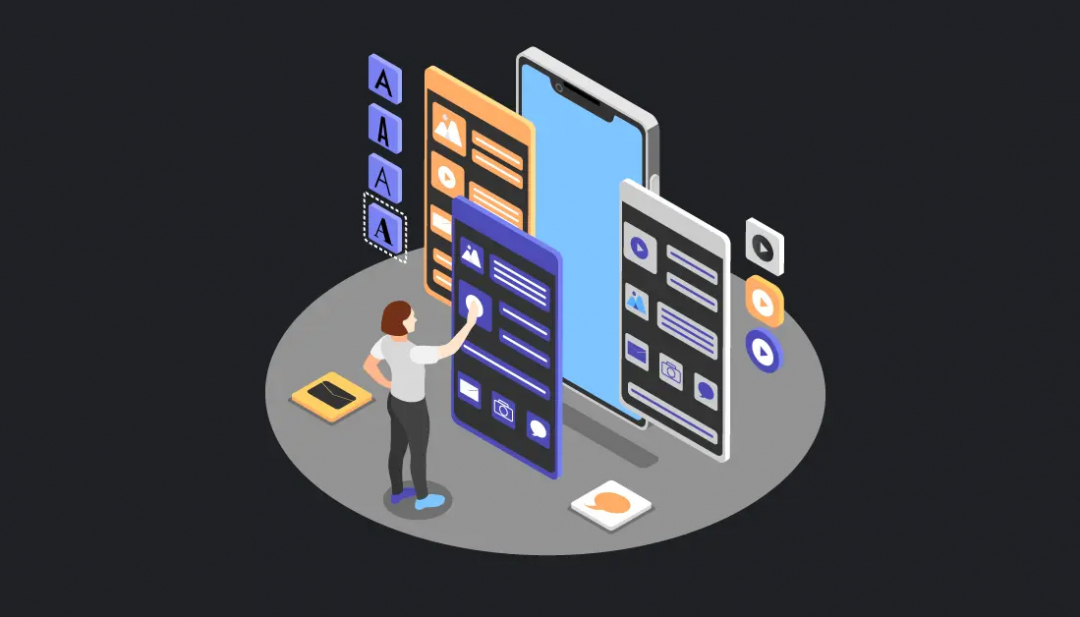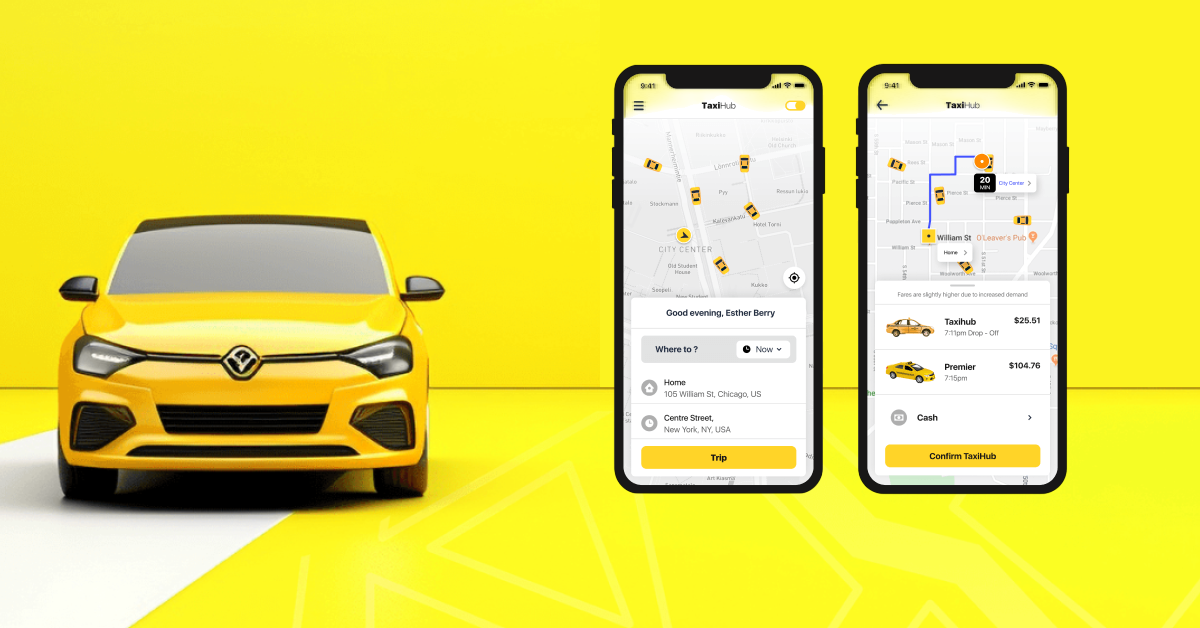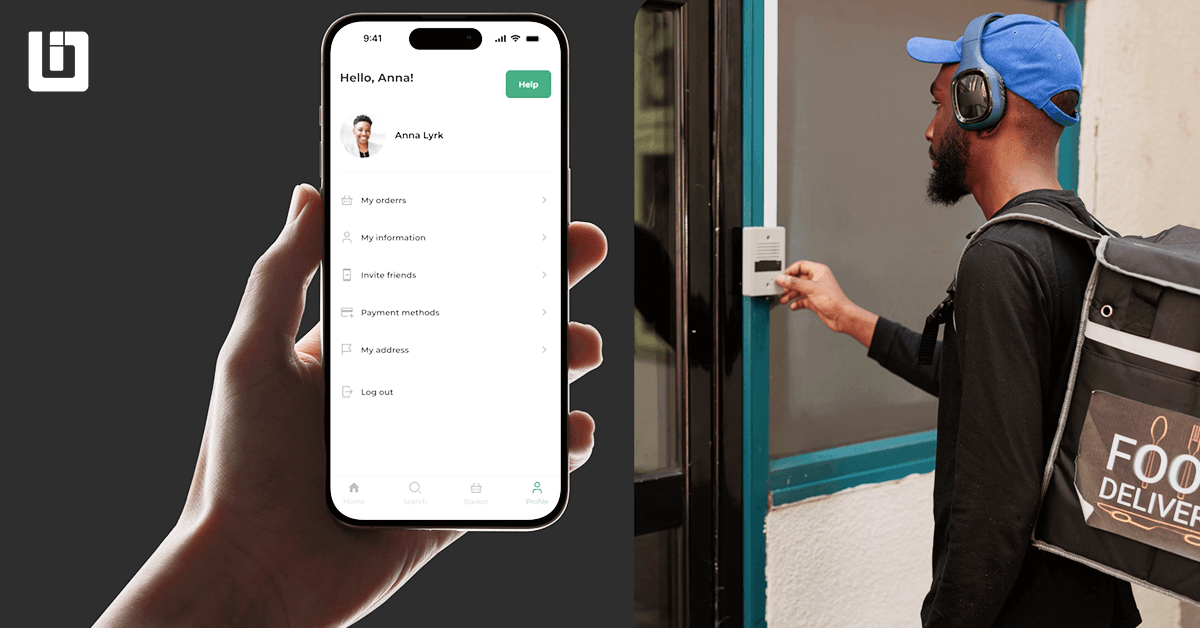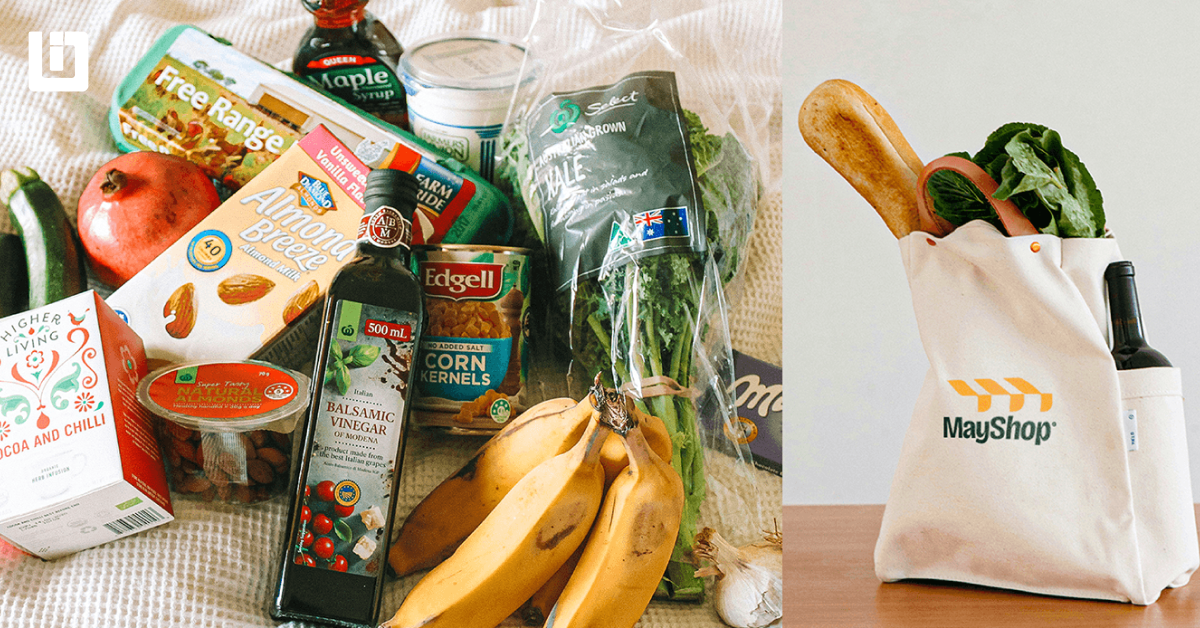How Mobile App Development Benefits To Different Industries

Nick
May 22, 2022

This has always been an interesting aspect for me as to how technology can change the world and revolutionise industries. Mobile applications have become the new age game changers especially in industries that were previously defined by conventional approaches.
However it is important to note that there is still much room for development in this area. In this blog, I will share some ideas about the various ways through which mobile app development can add value to different industries. I will discuss how these apps can be used to improve the operations, the experience of the customers and the growth of businesses across different industries including retail and health care.
Let’s learn how to create effective and efficient mobile applications and how they can transform industries. !
Which Popular Industries Are Leveraging the Benefits of Mobile Applications?
The time has come when you must know what are the different types of industries that can benefit from new modern technology mobile applications. So let's get this started.
1. Fantasy Sports
Fantasy sports app development has changed how sports lovers interact with the games they love. These apps help users form virtual teams, participate in leagues, and monitor the performance of active players in real time. The features that make mobile apps so appealing include real-time updates, secure transactions, and an engaging interface that makes users not navigate away from the application.
The fantasy sports industry has many advantages from these applications. It helps enhance user participation, generate more income from subscriptions and in-app purchases, and enhance brand recognition. It is crucial to have mobile app development to manage the system effectively and to meet future requirements.
Examples: Dream11, ESPN Fantasy Sports, FanDuel

2. Entertainment Industry
The entertainment industry uses mobile applications to offer entertainment content such as movies, music, games, and live events on demand. These educational app developments improve the user experience by offering options such as download in offline mode, recommended content, and interactive live streaming features.
Due to the high adoption rates of smartphones, entertainment applications are boosting the audience's engagement. It expands the global reach and creates opportunities for advertising and monetization through in-app purchases. Advanced app development provides a solid, efficient, visually appealing platform with secure transacting methods.Thus, the entertainment industry must embrace apps in the current world.
Examples: Netflix, Spotify, TikTok

3. Taxi Booking Apps
Taxi booking app development services are useful for organizing transportation services since it links passengers with drivers. Some useful features incorporated into these apps include real-time tracking, fare calculators, cashless payment systems, and ride-sharing, among others. This makes these apps very useful for urban transportation.
Mobile application in this industry enhances the convenience of the customers and travelers' safety and provides solutions based on data to fulfill the customers' needs. It allows businesses to provide high-quality services, minimize expenses, and increase customers' satisfaction by implementing flexible automated systems that can evolve in accordance with the changing needs and conditions of the market.
Examples: Uber, Lyft, Ola

4. Education
Education app development changes learning by providing students with much-needed services, including tutoring, live classes, and personalized study plans. These apps have enabled students to access education worldwide by providing learning materials, quizzes, and videos.
This is because mobile app development in education can provide efficient and effective solutions that are easy to use, have a good user interface, and can work offline to meet the diverse needs of learners. It helps to improve the engagement of the students, enhances the retention rate of the students, and makes education accessible to everyone, including needy students from low-income earners.
Examples: Duolingo, Coursera, BYJU's

5. Grocery
The grocery app development provides convenience in shopping for groceries with functions such as product search, quick checkout, and delivery services. Mobile app development makes these platforms efficient, reliable, and easy for users. This ensures that customers are engaged through artificial intelligence for personalized recommendations and real-time inventory updates. From a business perspective, grocery apps decrease the company's expenses, enhance the loyalty of the customers, and provide an analytical background for efficient stock management. They are a great solution for people in a hurry and needing to buy goods in the store and those who want to save time.
Examples: Instacart, BigBasket, Walmart Grocery

6. Travel & Tourism
The travel and tourism apps target the desire for exploration and provide functionality for creating itineraries, booking hotels, and getting local suggestions. These apps enhance the experience of the customers through the use of simple interfaces, real-time information, and secure forms of payment.
Travel application development also enhances the scope as it allows for multiple language support and incorporates AI to make recommendations. It helps businesses to increase bookings, manage the processes easily, and provide a good travel experience. These have changed how travelers organize their trips and how they experience them.
Examples: Booking.com, Airbnb, TripAdvisor

7. Food Delivery
Food delivery app development acts as a link between consumers and restaurants to help improve the ordering process. Enhancements such as GPS tracking, multiple payment options, and recommended items also improve the experience. The mobile app development ensures that the apps are scalable, have user-friendly interfaces, and are secure for transactions, making the experience more seamless.
From a business perspective, these apps help build customer loyalty, boost sales, and provide valuable insights into customer behavior. They are essential in satisfying the current consumer demand for the services that are provided at the user's convenience.
Examples: DoorDash, Uber Eats, Zomato

8. Healthcare
The following are some of the ways through which healthcare apps enhance the quality of patient care. Some of the services that can be provided include appointment scheduling, teleconsultations, and medication reminders. They allow people to monitor their well-being, get information about their health status, and interact with doctors and other healthcare providers anytime.
Developing mobile health applications requires creating HIPAA compliant platform sant, data storage systems, and user-friendly interfaces. These are important tools for improving the accessibility of healthcare, optimizing the working of health facilities, and encouraging preventive care in the current world of digital health.
Examples: Practo, MyFitnessPal, HealthifyMe

9. Finance & Banking
The finance and banking app development provides options for reimbursement, such as money transfer, bill payment, and investment monitoring, which makes the management of finance easier. Mobile app development for this sector provides secure platforms incorporated with features such as two-factor authentication and encryption.
These apps improve the user experience through features such as real-time notifications and artificial intelligence analysis and are available anytime, seven days a week. It helps businesses minimize the business's costs, increase customer satisfaction, and facilitate financial inclusion. These are key in integrating and transforming traditional banking institutions to provide financial services to the growing population through their mobile apps.
Examples: PayPal, Venmo, Revolut

10. Social Media
The social media app development that links people across the globe includes features like instant messaging, video sharing, and live streaming, among others. It creates platforms for people to come together, market brands, and create content. Notifications, processes, and large mobile-to-app capacity accommodate development, including the number of creation users.
These attractive platform interfaces are real-time useful pushes to businesses and influencers as they place targeted advertisements and have analytic tools to know their target audience, making social media apps crucial for personal and business interactions in the current world.
Examples: Instagram, Facebook, Snapchat

11. E-commerce
With the help of e-commerce app development, shopping can be made easier and more convenient. Facilities such as clear navigation, safe and secure payment gateways, and order tracking are some of the advantages that are helpful for customers. Mobile applications in e-commerce improve fast loading, provide AI-based recommendations, and enhance security.
It helps businesses make more sales, analyze the data, and tap into the international market. These apps have thus become a crucial part of bridging the gap between the buyer and the seller in the current digital market.
Examples: Amazon, Flipkart, Shopify

12. Manufacturing Industry
The mobile apps help in the optimization of the manufacturing plant through the management of inventory, quality, and workflow. They offer real-time information, remote control, and predictive maintenance alerts, which enhance efficiency. Such apps are developed using robust mobile app development that incorporates useful features like intuitive user interfaces, effective data presentation, and secure access systems.
The solutions offered by these apps include increasing efficiency, minimizing downtime, and effectively utilizing resources. Makes them essential in manufacturing.
Examples: Prodsmart, Odoo, Factory Four

"Explore Industry Solutions - Book a Demo Today!"
How Much Does It Cost to Develop A Mobile App?
To give you an idea about the cost to develop mobile applications for different industries we have curated different tables set with cost variations. So if you are someone who wants to build a mobile app according to your business needs, here is a perfect estimation.
1. Fantasy Sports App Development Cost
The fantasy app development cost depends on several factors such as the number of features it incorporates, the integration of real-time data and user management systems, and gamification. Other features like AI-based prediction or live streaming can also dramatically raise costs. Other costs include maintenance, the platform used, and integration of APIs, which are also discussed in detail below.
2. Entertainment App Development Cost
The entertainment app development cost depends on various factors, such as the type of content that is managed, the ability to use the app offline, live streaming options, and many more. Other factors that include licensing fees, the ability to support multiple languages, and security measures like Digital Rights Management also influence the cost.
3. Taxi Booking App Development Cost
Taxi app development cost depends on several factors, such as GPS tracking, driver-passenger matching algorithms, and payment integrations. This is because features such as the use of artificial intelligence including predictive analytics are known to increase the cost and complexity of the application.
4. Education App Development Cost
The cost of education apps depend on a number of factors such as the use of video hosting services, the incorporation of gamified quizzes and the extent of integration with learning management systems. Other features like using AI tutors or AR also help increase the budget.
5. Grocery App Development Cost
The grocery app development cost also depends on the features of inventory management, real-time monitoring, and the ability to make recommendations based on the customer’s history. Such features as the integration of AI or tools for delivery enhancement are also calculated into the costs.
6. Travel & Tourism App Development Cost
The travel app development costs are influenced by dynamic pricing, the ability to support multiple currencies and virtual tours. Other factors that also influence the budget include advanced analytics, and AI-based suggestions.
7. Food Delivery App Development Cost
Food delivery app development costs are administered by real-time tracking, several options of payment gateways, and demand forecasting algorithms. Other costs include using AI to make personalized offers.
8. Healthcare App Development Cost
The healthcare app development costs are protection influenced by IoT by the patient's HIPAA data. the regulations, The bar the integration on the integration of costs, and new complications.
9. Finance & Banking App Development Cost
The finance app development cost depends on several factors, such as encryption, real-time updates, and multi-factor authentication. Advanced analytics or blockchain integration can greatly increase these costs.
10. Social Media App Development Cost
Social media app development costs are affected by content moderation, the live-streaming features, and the inclusion of AR/VR. This means costs are rising due to the integration of AI technologies, such as recommendation engines that are powered by artificial intelligence.
11. E-commerce App Development Cost
The e-commerce app development cost varies depending on the features that are required for inventory synchronization, payment integrations, and personalization that use artificial intelligence. Other costs include the ability to scale and reach a global market.
12. Manufacturing Industry App Development Cost
The manufacturing app development costs are influenced by the integration of IoT, real-time control, and predictive maintenance. The use of complex features like advanced analytics or AI will also lead to high development costs.
How You Can Monetize Your Mobile App: Industry Oriented?
Now that you know the cost & benefits of developing mobile apps for particular industries, you must know about its monetization. I have compiled a list of monetization techniques for different industries' mobile apps so you can prepare for it.
- Fantasy Sports Mobile Apps
Fantasy sports apps generate revenue through contest entry fees, in-app purchases for bonuses, and subscription models offering advanced analytics. Advertising partnerships and sponsorships also bring in additional income, while premium memberships with exclusive features further enhance monetization opportunities.
- Entertainment Mobile Apps
There are various ways through which entertainment apps generate their revenue and these include subscription, advertising, pay per view among others. Other revenue streams include partnerships with content creators and licensing agreements. More so, in-app purchases for exclusive content or merchandise and data monetization through analytics also increase profitability.
- Taxi Booking Mobile Apps
Taxi apps make money by charging hours and commission offering fees premium from package rides, for the subscriptions used to priority surge service. Other revenue streams include in-app advertising and collaboration with local businesses to improve overall app revenue.
- Education Mobile Apps
Educational apps generate revenue in the following ways: through course subscriptions, where users pay a certain amount of money to access the course, and one-time payments for premium content and certifications. Revenue is also generated from partnerships with educational institutions, sponsored content, and advertising. To increase earnings, it is possible to integrate career counseling or personalized learning plans.
- Grocery Mobile Apps
Grocery delivery apps generate profits by charging delivery fees, implementing a surge pricing system during high-demand periods, and partnering with brands for featured listings. Some of the strategies used include subscription models where the customer pays a monthly charge in exchange for features such as free delivery or exclusive discounts, and commission fees from the vendors that are charged per transaction.
- Travel & Tourism Mobile Apps
There are various ways through which travel apps make money, and some of them include booking fees when buying flights, hotels, and tours. Other income sources include affiliate marketing of travel services, in-app advertising, and premium membership, which offers exclusive deals to users.
- Food Delivery Mobile Apps
Food delivery apps generate revenue through commission from restaurants, delivery charges from customers, and subscription plans, such as free delivery. Other sources of income include advertising space for restaurants and in-app promotions to increase profitability.
- Healthcare Mobile Apps
healthcare apps generate their revenue and the various strategies they employ to do so. The main advanced sources of health monitoring revenue features, for charging such consultation apps fees include subscription telemedicine models services for and partnership with medical practitioners. Other sources of revenue include; advertising of health related merchandise, and data driven collaborations.
- Finance & Banking Mobile Apps
Finance apps can earn money through subscription fees for premium services, transaction fees, and interest on loans. Other sources of revenue include partnerships with financial institutions for referral services and advertising, which also increase revenues.
- Social Media Mobile Apps
Social media apps generate revenue through advertising, selling user data, and charging fees for using the application. Revenue is also generated from the sale of digital products, in-app purchases, and collaborations with brands or influencers.
- E-commerce Mobile Apps
E-commerce apps generate revenue in several ways, such as commission from sellers, delivery charges, and advertising space for featured products. Revenue can also be generated from premium membership, where members enjoy various benefits, including free shipping and exclusive discounts.
- Manufacturing Mobile Apps
Manufacturing apps generate revenue in the following ways: The standard version provides basic analytics as a freemium model, while the premium version is offered at a subscription fee for enhanced analytics. The application also generates income from partnerships with supply chain solutions providers and gets commissions from marketplace integration. Other revenue sources include in-app advertisements and data monetization.
How IMG Global Infotech Can Help You?
At IMG Global Infotech, we are a mobile app development company offering top-of-the-line services to develop mobile applications suitable for your business. Our professional developers can develop high quality, robust and full scale applications for various sectors such as healthcare, education, e-commerce and many others. Our main areas of concentration include creation of innovative apps, excellent user interfaces, and successful project completion within the set time frame and the given budget. As native or cross platform developers, we ensure the application's quality, security, and performance is never compromised. Come to us with your ideas and we will help you bring them into the digital world and be the best among your competitors.





























